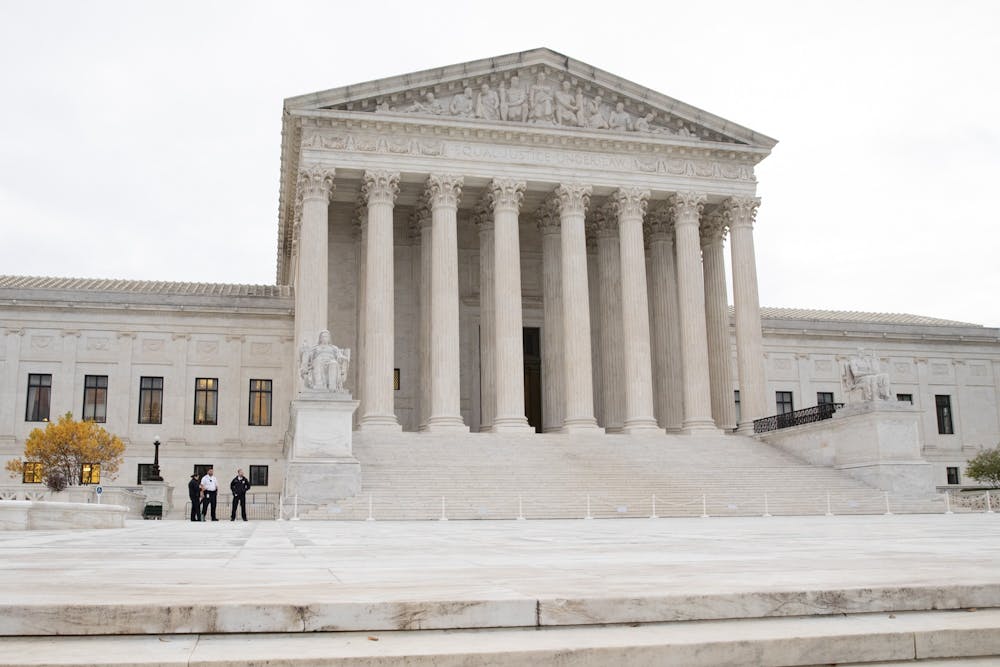President Joe Biden’s student debt relief plan has been indefinitely suspended by the Supreme Court, and the bizarre malfunctions of our financial aid systems are going to continue to push a loan culture onto students. It’s the cycle of debt, and the reason behind its pause is more destructive than protective.
The large majority of people with federal undergraduate or graduate loans were candidates for a part of Biden’s forgiveness program, Saving on a Valuable Education. It was structured around equating monthly payments to income and family size, and during its 11-month tenure, 4.5 million Americans had their loan payments set to zero. In July, the program was blocked as the fulfillment of an administrative stay request by Republican-led states. In August, the Supreme Court rejected an effort to lift this ruling.
The order issued by the justices in response to Biden’s urgent request for judicial intervention did not give reasons and no public dissents were noted.
At its root, Biden’s student loan relief plan is an apology for the inflation of college tuition due to abuse of the loan system. The process of making loans so accessible for students was supported by an illusion that college could be affordable for everyone, but it really just heightened college expenses and made attaining debt more extreme in its amounts — and more normalized.
The larger picture is an ugly one. But Biden’s forgiveness program was a step in the right direction until it was halted by the Supreme Court. This ruling opens an entirely separate conversation about its role as the principal beyond politics into what is consistent with our rights.
The program’s greatest critics remain primarily in the Republican Party, many using ethics for their argument. Why is it fair for millions of students to be relieved of their debt when there are thousands of people who didn’t attend college to avoid those burdens? Or what about the people who did pay their loans after years of chipping away at the boulder? Should they be reimbursed? What about private loans rather than federal ones? Do those not deserve to be forgiven? And what would relieving heaps of student debt mean for the legitimacy of loans in the future?
These questions hold merit, but they’re all derived from deeper bitterness. The "what about" argument is weakened by the potential of the SAVE program to prevent more stories of generational debt. There is always a pivot in policies and economics and there will always be a "what about” something, but it’s never enough to disadvantage everyone else.
Loan forgiveness transcends the “what about” questions. The other issue critics grapple with is Biden’s administration surpassing its legal authority and suggesting that student debt relief is tax-payer funded. Many of these concerns arise from feelings of resentment rather than an analysis of the broader implications. The conversation of Biden not possessing the authority to sweep waves of student debt himself is a real one to be had, and an on-going area of debate that he has worked around and through to provide the most debt relief possible.
But there’s more to this than just Biden’s campaign or even the Supreme Court’s ruling. This is a systemic issue. It's a failed system fighting other systems. There were catastrophic modifications to the FAFSA formula implemented this year, including an alteration which no longer considers the number of family members attending college to determine aid. In other words, the inner workings of student debt and financial aid have created a bit of a paradox — what’s supposed to be helping us is hurting us.




